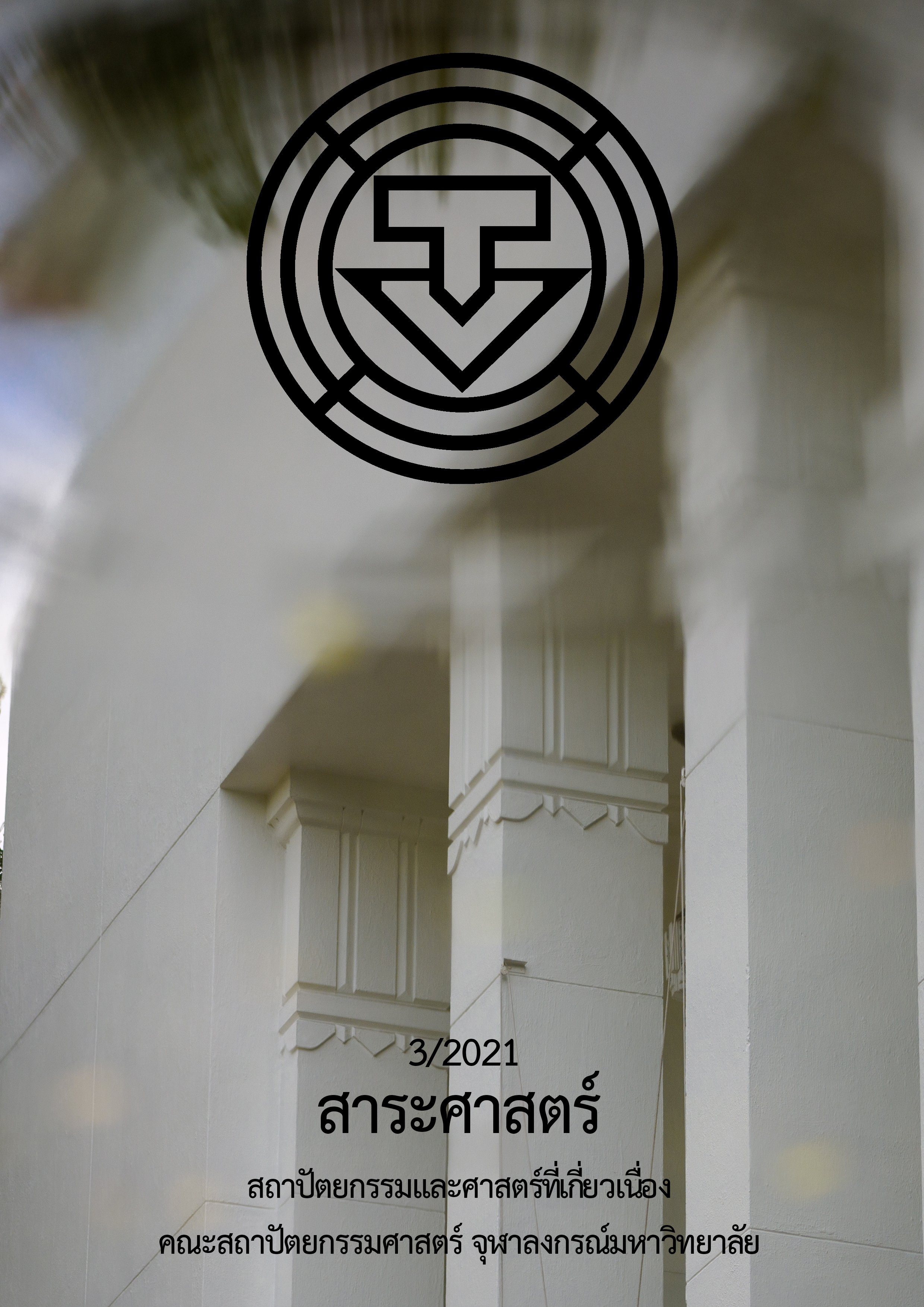The Development of a Mice Industry Hotel: A Case Study of Horizon Village Resort Chiang Mai
Main Article Content
Abstract
Horizon village resort. Is a large hotel that has been in developed for 13 years and is certified to Thailand Mice Venue Standards (TMVS). The purpose of this essay is to look into the elements that influence hotel development investment decisions from 2006 to 2019. The research method is as follows:
1) Review of the literature and relevant documents 2) Conduct a physical survey of the hotel 3) interview with entrepreneurs involved in the hotel building process, both in terms of development and
decision-making.
The study's findings demonstrate that hotel development decisions can be broken down into three distinct stages. 1) Entrepreneurs decide to invest for the first time Because they see business channels, entrepreneurs opt to spend for the first time. and have prior meeting and seminar experience As a result, the concept of learning about local dwellings and agriculture has been promoted. Including factors of the operator's readiness to invest. 2) The expansion of the tourism industry phase; The expansion of the tourism industry As a result, business owners have decided to reinvest in hotel construction. since tourism is in high demand especially Chinese tourists. The hotel has been expanded. And was certified as a Thailand Event Venue Standard (TMVS) in 2014, resulting in a significantly higher income. 3) Modern management phase; the heir has completed a hotel education program in another country. As well as experience working as a Cluster Sales Executive MICE in international hotels. She was promoted to deputy manager. Furthermore, both the physical components of building design and the usage of local people in service and arranging festivals, customs, and customs are brought together with the location of the community to present to be universal. from the sales growth rate Furthermore, positive social feedback and positive relationships with the surrounding communities help the hotel become renowned and more well-known through hosting events with various government and private sector entities.
Article Details
References
กระทรวงการท่องเที่ยวและกีฬา. กรมการท่องเที่ยว. (2562). สถิตินักท่องเที่ยวภายในประเทศ ปี 2548-2558 จำแนกตามภูมิภาคและจังหวัด. สืบค้นเมื่อ 5 มกราคม 2564, จาก https://mots.go.th/more_news_new.php?cid=592
ธณัชธันย์ พิธิธนสิน. (2557). กระบวนการพัฒนาโรงแรมบูติคที่มีกิจการเพื่อสังคม. (วิทยานิพนธ์ปริญญามหาบัณฑิต,จุฬาลงกรณ์มหาวิทยาลัย).
ธันยพร ธิราวัฒน์. (2549). การแปลงวัฒนธรรมท้องถิ่นให้เป็นสินค้า: กรณีศึกษาโรงแรมฮอไรซัน วิลเลจ แอนด์ รีสอร์ท.(วิทยานิพนธ์ปริญญามหาบัณฑิต, มหาวิทยาลัยเชียงใหม่).
บุญฑวรรณ วิงวอน, อัจฉราภรณ์ วรรณมะกอก และ อัจฉราเมฆ สุวรรณ. (2014). แนวทางการยกระดับภูมิปัญญาท้องถิ่น ด้วยนวัตกรรมผลิตภัณฑ์เชิงสร้างสรรค์ เพื่อเพิ่มมูลค่ากิจการวิสาหกิจขนาดย่อม อำเภอห้างฉัตร จังหวัดลำปาง. Journal of Management Science Chiangrai Rajabhat University, 9(1), 102-119.
ประสิทธิ์ ตงยิ่งศิริ. (2544). การวางแผนและการวิเคราะห์โครงการ. กรุงเทพฯ: ซีเอ็ดยูเคชั่น.
พงศกร แซ่ลิ่ม. (2015). ผลกระทบทางเศรษฐกิจของการเป็นเมืองไมซ์ กรณีจังหวัดเชียงใหม่. (วิทยานิพนธ์ปริญญามหาบัณฑิต, มหาวิทยาลัยเชียงใหม่).
พัฒนา กิติอาษา. (2546). ท้องถิ่นนิยม: การทบทวนทฤษฎีและกรอบแนวคิด (พิมพ์ครั้งที่ 2). กรุงเทพฯ: คณะกรรมการ.
เมษ์ธาวิน พลโยธี และ ชิชาญา เล่ห์รักษา. (2563, มกราคม-มิถุนายน). การพัฒนาการท่องเที่ยวเชิงวัฒนธรรมอย่างยั่งยืนของหมู่บ้านกลองยาวแห่งบ้านตลาด ตำบลบ้านหวาย อำเภอวาปีปทุม จังหวัดมหาสารคาม. วารสารบริหารศาสตร์ มหาวิทยาลัยอุบลราชธานี, 9(1), 69-85.
เมืองแมน ศิริญาณ. (2021). การจัดการทรัพยากรวัฒนธรรมภายใต้แนวคิดการจัดการภาครัฐแนวใหม่. Journal of Graduate School, Pitchayatat, Ubon Ratchathani Rajabhat University, 16(1), 145-156.
รัชนิกร สำราญรัตน์. (2553). การจัดการชุมชนสัมพันธ์ของผู้ประกอบการธุรกิจโรงแรม. (วิทยานิพนธ์ปริญญามหาบัณฑิต, จุฬาลงกรณ์มหาวิทยาลัย).
วนารัตน์ อิ้มพัฒน์. (2557). ความแตกต่างระหว่างการพัฒนาที่พักประเภทโฮสเทลที่มีแนวคิดเชิงธุรกิจกับที่มีแนวคิดธุรกิจเกื้อกูลในเขตเมืองเก่า กรุงเทพมหานคร: กรณีศึกษา โครงการ เฮียโฮสเทล และวันซ์อะเกนโฮสเทล. (วิทยานิพนธ์ปริญญามหาบัณฑิต, จุฬาลงกรณ์มหาวิทยาลัย).
วัชราภรณ์ สุรภี และ ฉลองศรี พิมลสมพงศ์. (2013). การศึกษาความต้องการสมรรถนะของบุคลากรในอุตสาหกรรมการจัด ประชุมนิทรรศการและการท่องเที่ยวเพื่อเป็นรางวัลของประเทศไทย. วารสารบริหารธุรกิจ เศรษฐศาสตร์และการสื่อสาร, 8(2), 82-88.
วินัย วารมา, ชาญชัย บัญชาพัฒนศักดา และ อุษณีษ์ เสวกวัชรี. (2560). คุณลักษณะสำคัญของผู้ประกอบการวิสาหกิจขนาดกลางและขนาดย่อมที่ประสบความสำเร็จในภาคธุรกิจการค้าในเขตกรุงเทพมหานคร. วารสารราชมงคลล้านนา มหาวิทยาลัยชินวัตร, 5(2), 124 -133.
วีระยุทธ เศรษฐเสถียร. (2017). ศักยภาพและความพร้อมของเมืองเชียงใหม่กับธุรกิจการจัดประชุมไมซ์. Journal of Graduate Research, 8(1), 199-215.
สถิตย์ นิยมญาติ. (2546). คุณลักษณะของผู้ประกอบการด้านการท่องเที่ยวที่ประสบความสำเร็จ. กรุงเทพฯ: สถาบันพัฒนาวิสาหกิจขนาดกลางและขนาดย่อม.
สำนักงานส่งเสริมการจัดประชุมและนิทรรศการ. (2558). บทสรุปผู้บริหารโครงการจัดทำหลักเกณฑ์และแนวทางในการพัฒนาไมซ์ซิตี้. กรุงเทพฯ: ไลออนซิตี้.
สำนักงานสถิติแห่งชาติ. (2560). รายงานประจำปี 2560 สำนักงานสถิติแห่งชาติ. สืบค้นเมื่อ 5 มกราคม 2564, จาก http://www.nso.go.th/sites/2014/DocLib9/สิ่งพิมพ์รายงานประจำปี
อรุณวรรณ ปราบพาล. (2020). โรงแรมที่ได้รับรางวัลจากการนำหลักปรัชญาเศรษฐกิจพอเพียงมาประยุกต์ใช้. Sarasatr, 3(1), 68-80.
Caliendo, Marco, Fossen, Frank, & Kritikos, Alexander S. (2014). Personality characteristics and the decisions to become and stay self-employed. Small Business Economics, 42(4), 787-814.
Graaskamp., James A. (1972). A rational approach to feasibility analysis. The Appraisal Journal, 40(4), 513-521.
Krauss, Stefanie I., Frese, Michael, Friedrich, Christian, & Unger, Jens, M. (2005). Entrepreneurial orientation: A psychological model of success among Southern African small business owners. European Journal of Work and Organizational Psychology, 14(3), 315-344.
Miles, Mike E., Berens, Gayle, Eppli, Mark, J. & Weiss, Marc. (2000). Real estate development: Principles and process. Washington, DC: Urban Land Inst.
Robbins, Stephen P., Decenzo, David A., & Coulter, Mary K. (2014). Fundamentals of management: Essential concepts and applications. Modern Management Journal, 12(1), 110-116.
Sang M., Lee, & Peterson, Suzanne J. (2000). Culture, entrepreneurial orientation, and global competitiveness. Journal of World Business, 35(4), 401-416.


